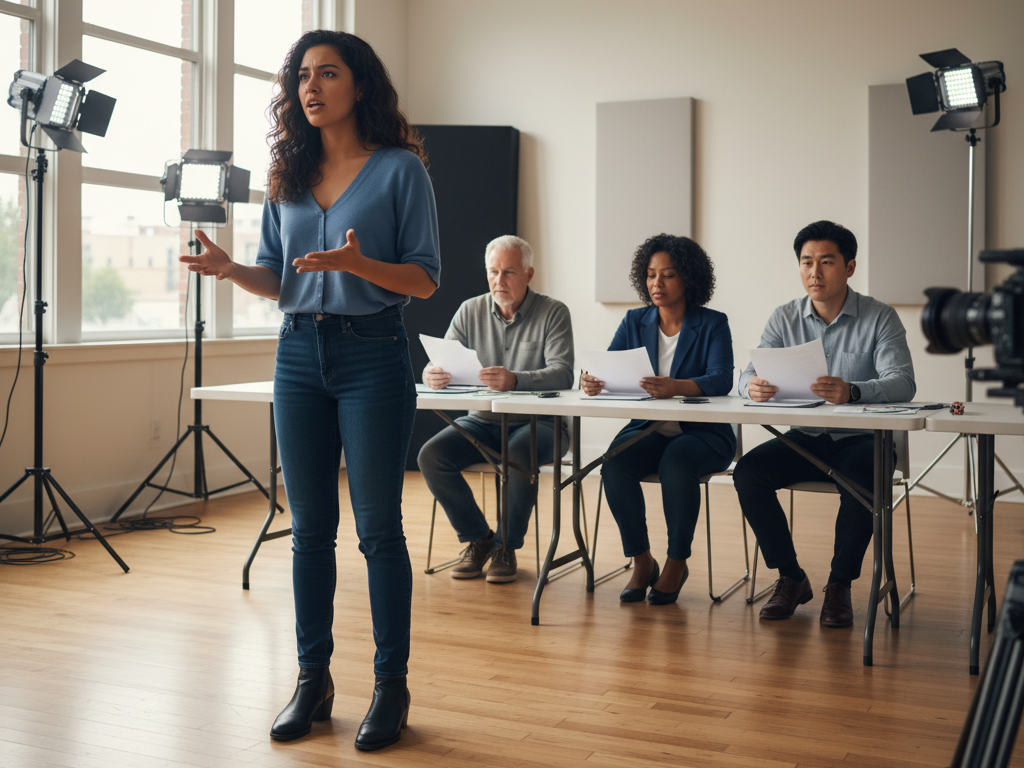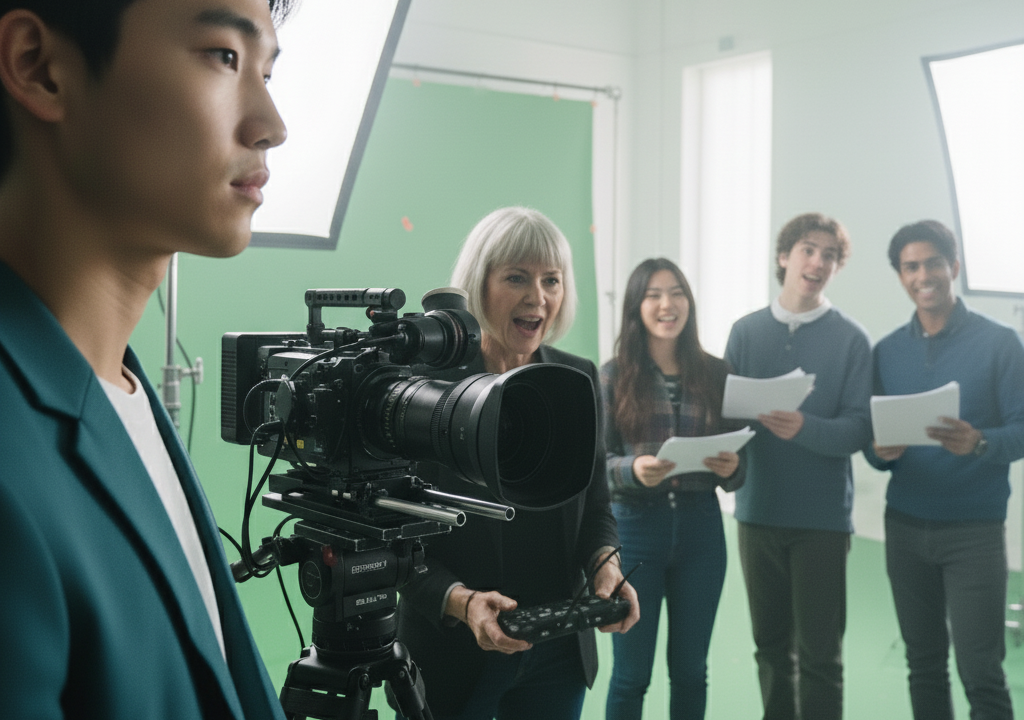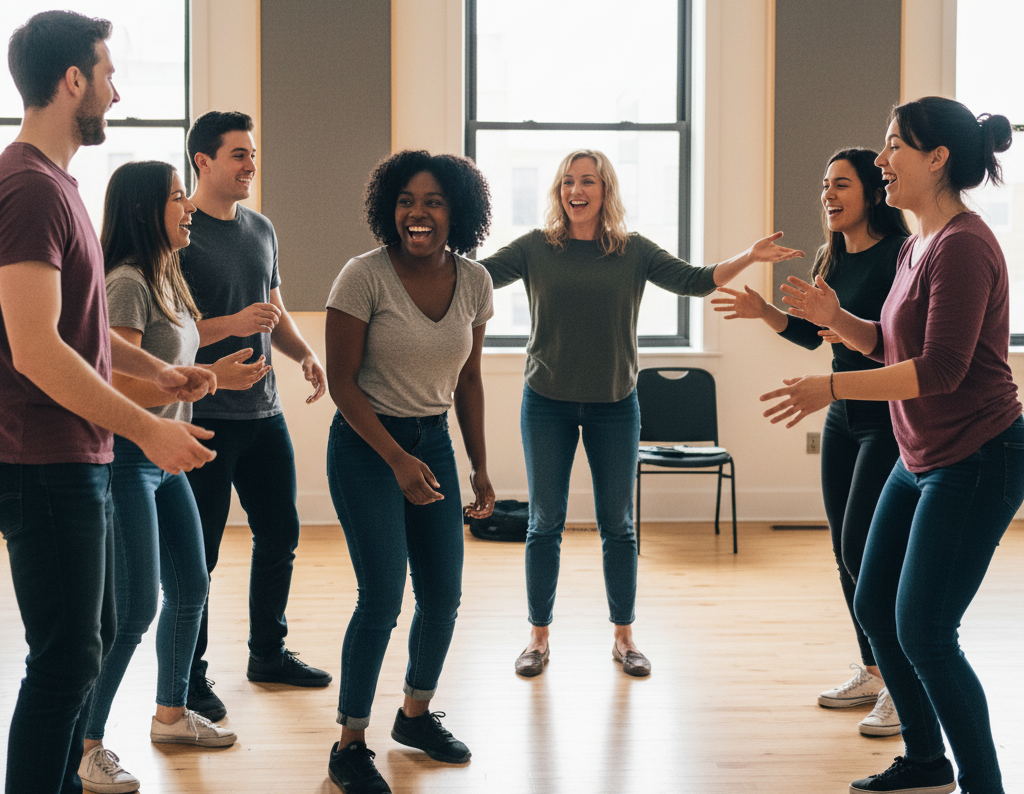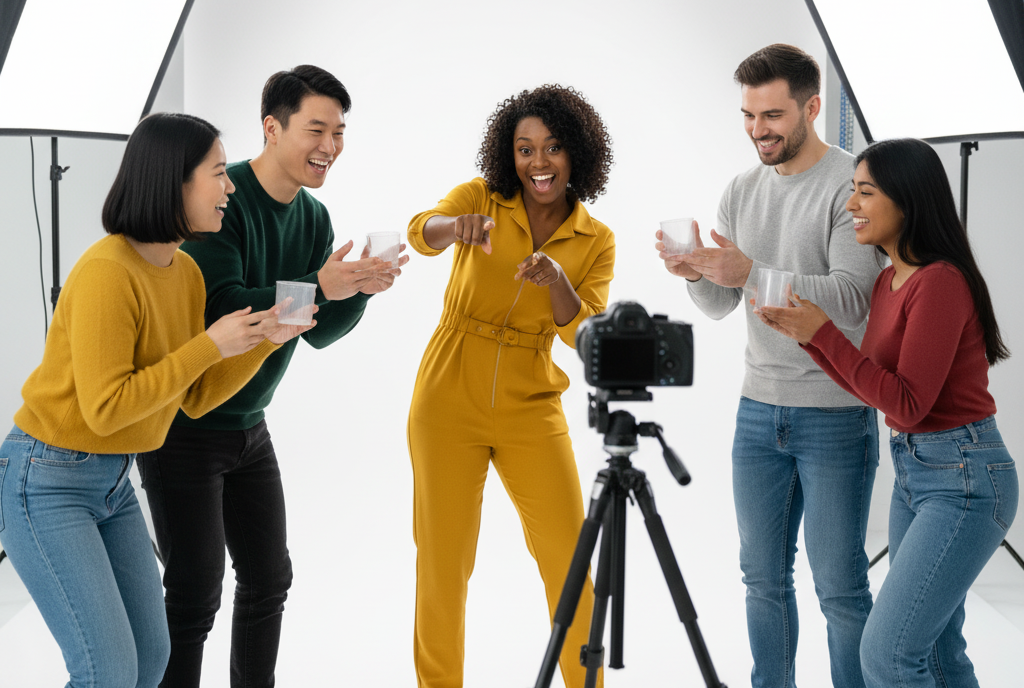Acting Class for Film: How to Choose the Right Training
The Ultimate Guide to Deciding Which Film Acting Classes to Take
Welcome! If you made it this far into your acting journey, looking at a mountain of studio options and class descriptions, you’re in the right place. Indeed, every working actor has been exactly where you are right now. They’ve all wondered how to spend their precious time and money to get the best training. Deciding on the right acting alass for film can feel overwhelming. However, it doesn’t have to be. Therefore, we’re going to break down the essential areas of study.
Consequently, you can build a training plan that truly works for you. This gives you the real-world skills you need. You’ll walk into an audition room with confidence. Moreover, you’ll shine your skills on set. Think of this as your personalized roadmap. To clarify, it leads to a solid foundation. This foundation will sustain your journey working as a film actor.
Scene Study: The Foundation of Any Good Acting Class for Film
This is the absolute bedrock of your craft. Forget all the technical stuff for a minute. Instead, Scene Study is where you learn how to be a human being having a moment under imaginary circumstances. Understanding the relationships you have is key. How you react to your environments is also crucial. What you do with your character matters greatly. Specifically, it’s where you dig deep into a script. Figure out what your character wants. Furthermore, determine what they are willing to do to get it.
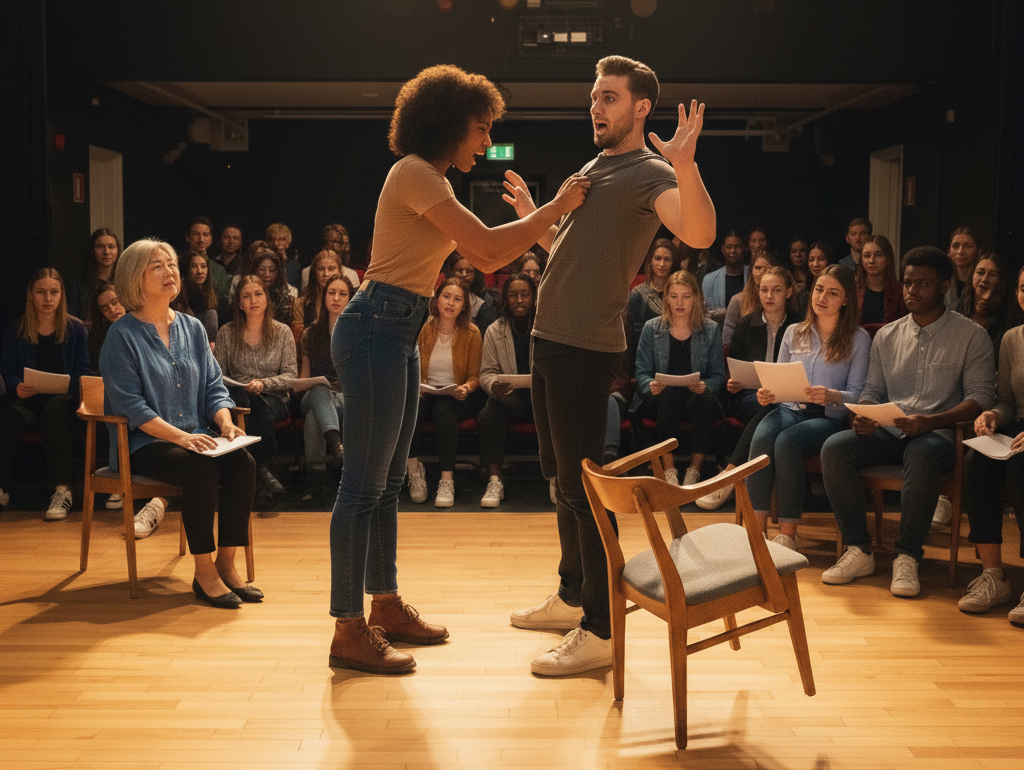
I would highly recommend Ivana Chubbuck Studio as well as her book The Power of the Actor. This is a phenomenal source. Actors can learn to make bold, personal choices. These choices must root in their own life experiences. This leads to more impactful and memorable work. Many Oscar-winning actors praise the technique. Therefore, it empowers actors to channel real emotions purposefully. This makes every performance both personal and universally relatable. It enriches primal human needs. Check out her interview on working with movie stars:
Audition Technique: Your Survival Skill for a Film Acting Career
Let’s face it: getting the job requires you to be brilliant for around five minutes during an audition. As a matter of fact, as a professional actor, you will spend far more time auditioning than actually shooting. That is the work you signed up for. It’s your job interview for getting the job. Research, research, research! Consequently, audition technique isn’t a luxury. Rather, it’s a survival skill!
A dedicated audition technique class teaches you how to quickly analyze a scene. You often get short notice. This gives you direction to make strong, specific choices. You must deliver them under pressure. You’ll learn how to handle different casting scenarios. This ranges from self-taping in your closet to walking into the room for a massive network project. This class helps you translate your artistry into a bookable product. In sum, for a professional, a dedicated audition technique acting class for film is a survival skill!
I would recommend the Amy Lyndon Technique for a structured approach. Use it to conquer auditions. The Lyndon technique emphasizes script analysis and guidelines. This helps actors understand character motivations. They learn why they are in the scene. The technicalities you’ll learn understanding the script will set you apart. Understanding how you fit into the story is key. This beats actors who just rely on random heighten emotions.
On-Camera Technique: Essential Training in Every Acting Class for Film
You could be the greatest live performer in the world. However, the camera is a truth-teller. It sees everything. The way you communicate a thought in real life scenarios could be huge and broad. Conversely, the way you do it for a close-up shot in film is subtle and intimate. During filming a dramatic scene, you could be pouring your heart out to another actor. Yet, the other actor might take up most of the screen time. Why? Your face wasn’t close to the camera during a close-up shot. This is the difference an On-Camera Technique class will teach you.
This training is vital for film work. You’ll learn where to look. You’ll learn where not to look (the lens! Most of the time). You learn how to adjust your performance when the camera is in for a close-up. Furthermore, you learn the incredible power of simply thinking a thought on screen. It’s about learning to trust that your inner life is enough. Less is often so much more. This is true when that lens is staring right into your soul! Finding an On-Camera Technique Acting Class for Film in-person is important. It helps you understand how the camera sees you.
A good resource for On-Camera Technique is Secrets of Screen Acting by Patrick Tucker. The book is highly regarded. Because of this, it offers practical, technical, and comprehensive approaches. It focuses on acting specifically for the camera. There are hands-on exercises. There are clear explanations of on-set terminology. Moreover, insightful behind-the-scenes knowledge helps actors understand their role. One of the highlights the book offers are timecodes to popular movies so you can see which camera techniques are being implemented.
Improv: The Flexible Edge in Your Film Acting Training
If the word Improv only makes you think of short-form comedy games, think again! For a professional film actor, Improv training is your secret weapon. It’s not just about being funny. Instead, it’s about being spontaneous and present.
Improv strips away your need for a script. It forces you to listen. You must react honestly. You have to make your scene partner look good. This is invaluable when a director gives you a last-minute adjustment. Similarly, it helps when a co-star throws you an unexpected curveball on set. It makes you fearless, flexible, and an incredible collaborator. These are qualities directors love. Find an Improv acting class local to you.
Commercial: A Smart Financial Acting Class for Film Actors
Need a reliable way to pay the bills? Pursue your dramatic dreams! Commercial acting is the answer. Financially you will find how well compensating these type of jobs can bring. It is an entirely different beast than film acting. It requires a specific, high-energy, and friendly approach.
In a Commercial acting class, you learn how to project a sense of authenticity and enthusiasm for a product. This is often done without saying a word. You’ll master the quick shifts in tone and energy. You also learn the specific format for commercial auditions. Plus, commercial residuals can be an absolute life-saver. Getting good at commercial work is one of the smartest career moves you can make.
Business of Acting: Turning Training into a Career
This is the part most actors dread. Nevertheless, it’s just as important as your craft. The Business of Acting class is how you turn your talent into a sustainable career. You can be the most talented person. But, if you don’t have the right headshot, you’ll be overlooked by another actor who looks the part. Likewise, if your resume is not formatted properly, you could be adding red flags for your future agent deciding to recruit you. Trust me, competition is fierce. Employers want the person who fits exactly what they need.
Finding a class on business on acting can cover everything. This includes marketing yourself (branding, social media, your website). Also, it covers understanding the industry structure (agents, managers, unions, and casting directors). You’ll learn how to handle meetings. You’ll know what to look for in a contract. Furthermore, you’ll learn the professional etiquette that keeps you working. Treat yourself like the small business you are. Ultimately, you will set yourself up for success! Every component described here is a crucial part of a complete Acting Class for Film training plan.
Self-Management for Actors by Bonnie Gillespie is a highly regarded book for learning the acting business because it offers a clear, practical roadmap for actors to take control of their acting careers.

